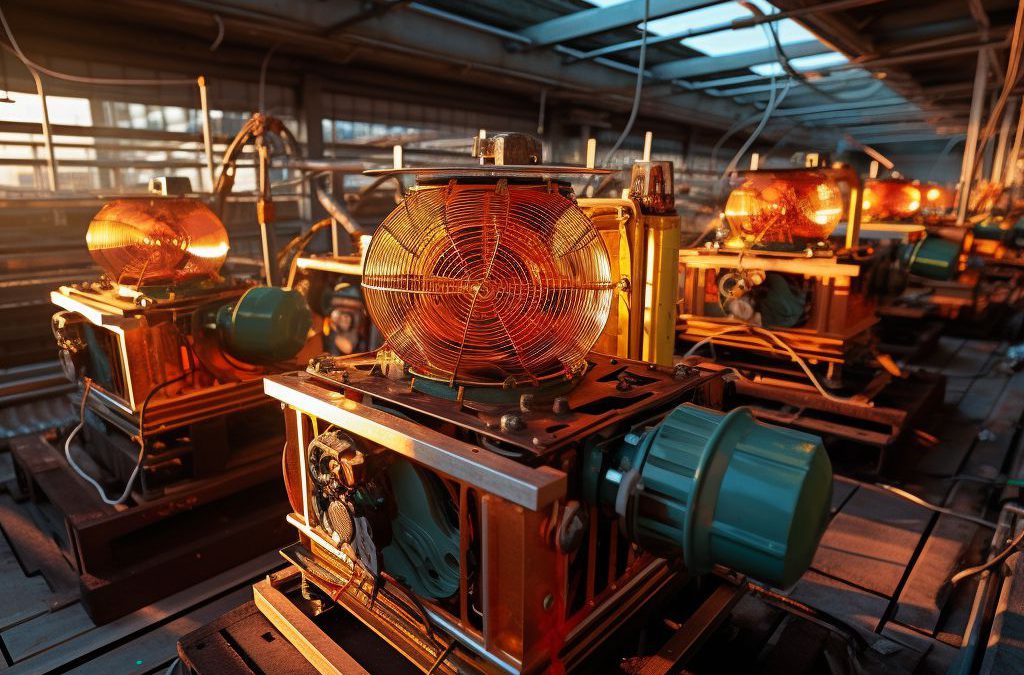When it comes to keeping our homes cool during the hot and humid summer months, air conditioning units are an essential element. They provide us with comfort and relief from the scorching heat. However, like any other appliance in our homes, ACs have a lifespan. Have you ever wondered how long your air conditioner will last? In this article, we’ll explore the average life of an AC unit, factors that affect its longevity, and how to extend the life of your AC.
Tabe of Contents
- 1. Understanding How Long Air Conditioners Typically Last
- 2. Causes of AC Unit Life Expectancy and Maintenance Tips
- 3. The Role of Air Conditioner Installation in Its Longevity
- 4. Factors Affecting The Average Lifespan of Your Air Conditioning System
- 5. Key Signs That Indicate Your AC Unit May Need Replacement
- People Also Ask:
- Conclusion:
1. Understanding How Long Air Conditioners Typically Last
Air conditioners are an essential component of air-conditioning systems that provide comfort during hot and humid summer months. However, they are not indefinite units and have a specific lifespan. can help you plan for maintenance expenses, anticipate replacement costs, and make informed decisions when upgrading your HVAC system.
On average, air conditioners can last anywhere between 10 to 15 years with proper usage, maintenance, and upkeep. However, it’s important to consider factors such as brand, model, usage patterns, maintenance frequency, and climate, as they play a significant role in determining the lifespan of an AC unit.
Several factors can impact how long your air conditioning system lasts, such as the frequency of maintenance, quality of installation, and usage patterns. Neglecting regular maintenance, rough handling, and improper installation practices can significantly affect the longevity of your air conditioner and lead to issues such as refrigerant leaks, electrical problems, or compressor failures.
To maximize the lifespan of your AC, it’s recommended to schedule routine maintenance with a professional HVAC contractor for regular cleaning, tune-ups, and preventive measures. Additionally, adhering to manufacturer guidelines, using the correct replacement parts, and avoiding overworking your AC can extend the life of your system and save on energy costs.
In conclusion, is a vital aspect of ensuring your HVAC system runs efficiently and effectively. Regular maintenance, proper installation, and adherence to industry best practices can extend the life of your air conditioning unit and ensure you receive optimal comfort for years to come.
2. Causes of AC Unit Life Expectancy and Maintenance Tips
Causes of AC Unit Life Expectancy
The average life expectancy of an air conditioning unit can vary from 10 to 20 years depending on various factors. One of the most significant factors that can impact the lifespan of an air conditioning unit is the frequency of use. AC units that are used frequently tend to wear out quickly. Similarly, environmental factors such as the climate, pollution, and humidity can also take a toll on the life of your air conditioning system.
Another critical factor that can affect the life of your AC unit is the quality of its parts and components. High-quality components are essential for a longer-lasting air conditioner. Cheap and inferior parts can cause issues with the system, which in turn can cause damage to other components and result in a shorter lifespan.
Maintenance Tips for Your AC Unit
Proper maintenance is crucial to ensure that your AC unit lasts as long as possible. Below are some tips to help maintain your air conditioning system effectively:
1. Regular Cleaning: Clean the outdoor unit regularly to remove dirt, debris, and other contaminants that can affect the performance of your air conditioning system.
2. Change Air Filters: Air filters should be changed regularly to ensure proper airflow and prevent dirt and debris accumulation.
3. Timely Repairs: If you notice any issues with your AC unit, have it inspected by a professional and address the problem before it becomes a more significant and costly issue.
4. Professional Maintenance: Regular maintenance by a professional can help keep your system running smoothly and extend its lifespan.
By following these maintenance tips and addressing issues promptly, you can help ensure that your air conditioning system lasts as long as possible.
3. The Role of Air Conditioner Installation in Its Longevity
The quality of installation plays a crucial role in determining the lifespan of your air conditioning system. Improper installation can lead to various issues, including low cooling efficiency, frequent breakdowns, increased energy bills, and premature wear and tear of components. To ensure your AC unit lasts the expected lifespan, it’s essential to work with a professional and experienced HVAC contractor for installation.
One critical aspect of air conditioner installation is choosing the right size system for your property. An undersized or oversized AC unit can result in subpar performance, excessive cycling, and high operating costs. A skilled technician will perform a load calculation to determine the correct size system for your home or business based on factors such as square footage, insulation, and local weather conditions.
Another critical installation aspect that affects the longevity of your air conditioning system is the placement of the outdoor and indoor units, refrigerant line routing, and ventilation. A poorly positioned or poorly installed system can cause refrigerant leaks, airflow restrictions, compressor strain, and other problems that shorten the unit’s lifespan. Therefore, ensure that the installation technician follows the manufacturer’s specifications and industry best practices for installing your AC unit.
In summary, proper installation is a key factor in maximizing the lifespan of your air conditioning system. By working with a reliable HVAC contractor and following installation best practices, you can help ensure that your AC unit performs at its optimal level for many years to come.
4. Factors Affecting The Average Lifespan of Your Air Conditioning System
Air conditioning systems are complex machines that require regular maintenance for optimal performance and longevity. However, there are several factors that can affect the average lifespan of your AC unit. Understanding these factors can help homeowners make informed decisions about their cooling system’s maintenance and replacement needs.
1. Age of the AC Unit
The age of your AC system is the most critical factor in determining its lifespan. Generally, air conditioning systems last between 10-15 years with proper maintenance. However, older systems require frequent repairs and can become less energy-efficient, leading to higher utility bills.
2. Quality of Installation
The quality of installation is crucial in ensuring the longevity of your air conditioning system. Poor installation practices, such as incorrect sizing, can cause the system to overwork, leading to mechanical wear and tear, early component failure, and decreased system lifespan.
3. Maintenance and Upkeep
Regular maintenance and upkeep are essential in extending the life of your AC unit. The lack of proper maintenance can lead to clogs in the air filters and coils, which can put excessive strain on your system’s components and reduce its efficiency, ultimately resulting in a shorter lifespan.
4. Climate and Usage
AC units in areas with extreme climates, such as high humidity, salt air, or low temperatures, may have a shorter lifespan due to the increased strain on the system. A unit that frequently operates under extreme conditions may require more frequent maintenance and repairs, reducing its overall lifespan.
5. Manufacturer and Model
The manufacturer, model, and type of air conditioning system also influence the unit’s lifespan. Some brands and models are more reliable and durable than others, and some types, such as minisplit systems, have longer lifespans. Researching the manufacturer’s reputation and choosing a reliable model can help to extend the life of your AC unit.
It is essential to note that these are not the only factors that affect the average lifespan of an AC unit. Other factors such as environmental conditions, user behavior, and the frequency of service calls can also influence the lifespan of your AC system. By understanding these factors, homeowners can take proactive steps to maintain and replace their AC system when necessary.
5. Key Signs That Indicate Your AC Unit May Need Replacement
Even though air conditioners typically have a lifespan of 10-15 years, there are some cases where they may need replacement earlier. Here are some signs that indicate your AC unit may need replacement:
- Age of the AC Unit: If your air conditioner is more than 12-15 years old, it may be more cost-effective to replace it rather than keep repairing it.
- Frequent Breakdowns: If you find yourself calling a technician frequently for repairs, it may be a sign that your AC unit is near the end of its life span.
- High Energy Bills: If you notice a steady increase in your energy bills even though you’re not using your AC more, it could be because your AC unit is not working efficiently.
- Strange Noises: If you hear grinding, banging, or squeaking noises coming from your AC unit, it may indicate a problem that needs to be repaired immediately.
- Weak Airflow: If your air conditioner doesn’t seem to cool your home as quickly or effectively as it used to, it could be a sign that it’s nearing the end of its lifespan.
If you notice any of these signs, it may be time to consider replacing your AC unit. While the upfront cost may seem expensive, a new and energy-efficient air conditioner can save you money on your utility bills and give you peace of mind knowing you won’t have to keep shelling out money for repairs.
People Also Ask:
1. What is the average lifespan of an AC unit?
Generally, an air conditioning unit can last for 10-15 years, depending on its usage, maintenance, and quality.
2. Can an AC unit last 20 years?
Yes, it is possible for an AC unit to last up to 20 years with proper maintenance and repairs, but it is not guaranteed.
3. What factors affect the lifespan of an AC unit?
The lifespan of an AC unit can be affected by the frequency of use, the unit quality, the installation quality, the maintenance, and the age of the unit.
4. How can I extend the lifespan of my AC unit?
You can extend the lifespan of your AC unit by scheduling regular maintenance, changing air filters regularly, keeping the outdoor unit clean, not overworking the unit, and repairing any issues promptly.
5. Should I replace my AC unit before it stops working?
It is recommended to replace your AC unit if it is over 10 years old, requires frequent repairs, uses outdated ozone-depleting refrigerant, or has an inefficient SEER rating.
Conclusion:
The average lifespan of an AC unit can vary from 10-15 years, but with proper maintenance and repairs, it is possible for an AC unit to last up to 20 years. Several factors can affect the lifespan of an AC unit, including usage, quality, installation, maintenance, and age. With regular maintenance and upkeep, you can extend the lifespan of your AC unit and avoid costly repairs or replacements.

AC Installation Manager
Daniel’s expertise lies in seamless installations, guiding clients through the selection process to ensure the perfect fit for their spaces. His keen eye for detail ensures every installation exceeds expectations.

